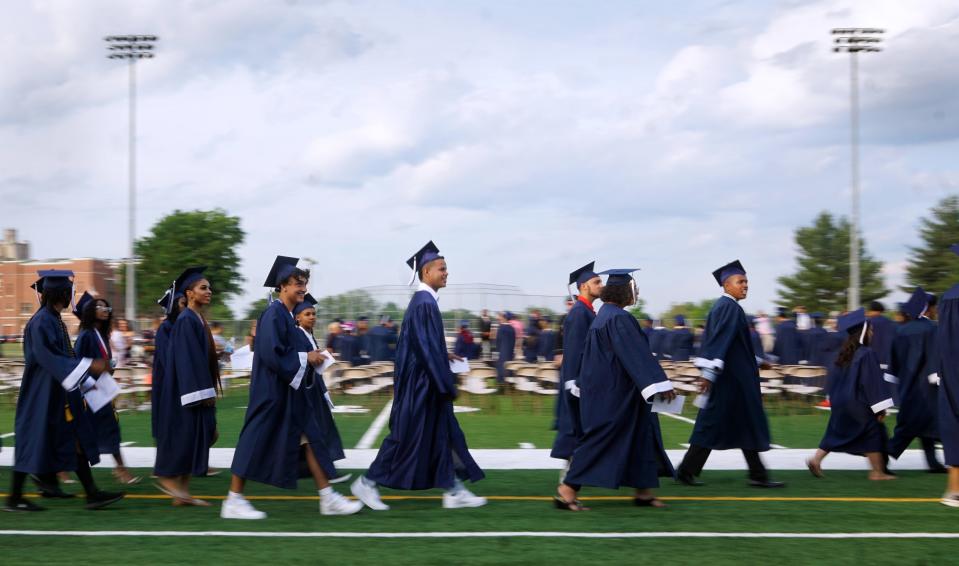Look back at Hope: Empowered teachers, teams change schools | Opinion
Kay Scheidler, of Providence, is a former Massachusetts districts’ assistant superintendent and curriculum director. She is author of "Standards Matter" and "Renegade Teacher: Inside School Walls with Standards and the Test."
Lots of people have opinions on how schools can work better. Most recently, in their commentary, Sen. Jessica de la Cruz and Cesar Grajales (“RI students should attend the school that meets their needs,” Commentary, March 30) argue for more school choice for Latino students.
I was fortunate as a teacher at Hope High School in Providence to be able to teach in a program that provided powerful support for teachers, and inspired and helped all students learn. With a simple change in use of time, it unleashed empowerment for teachers to be able to do their best, for whoever our students were.
When I first started teaching at Hope, it was considered a good school. Many of our East Side students went on to Brown University and other Ivy League colleges and on to better futures.
More: What did state leaders ask for from Education Secretary Cardona? Funding, and more of it.
A 1969 protest changed Hope forever. Our smaller population of Black students staged what some called “a riot.” These students had been assigned apparently by skin color to low-level tracked classes. One bright spring morning, school was rocked as a small group ran down the main corridor with long poles smashing high ceiling lights, shutting down school. They just wanted to get attention. We shouldn’t have been surprised, with nearby Brown also shut down with protests for equity. Central office attempts were made to respond to demands for better school for underserved students. Nothing worked. White flight, aided by backlash to federal busing, changed the student population. Teachers were bewildered on how to do better.

Then in the 1980s a national school change leader, Brown Prof. Ted Sizer, who was way ahead of his time, created a program at Hope that worked magic. With his “Nine Common Principles” governing a new way to do school, to better focus on learning, Sizer dramatically shifted school to focus on high level learning for all students.
With higher expectations, I now taught just two, longer English classes a day, only half the number of students, instead of the brutal load of five classes a day and over a hundred students. We taught just one course, untracked, with mixed students learning from each other. Our team of teachers in math, English, science and history had school day time to confer on our shared group of students, now feeling ownership for our group. The new focus supported teachers to be able to help all students. There were no new costs, only a change in thinking.
More: More Providence teachers are being displaced this year. Here's why.
Today schools everywhere struggle. With COVID-19's shutdown of schools bringing learning loss, continued absenteeism nationally, and an increase in limited English-speaking students, teachers are discouraged by the challenges. Our informed commissioner of education, Angélica Infante-Green, coming from New York state, has made a valiant effort to move Providence schools forward, but meets resistance.
I know from my own classroom experience that it’s instead unlocking the “sleeping giant” of teacher empowerment that’s the type of change needed today. Now with the 2015 national Common Standards and the late 1990s federally required test, we have learning guides that would have been the icing on the cake for our Sizer program, with a common now national test that shows students have learned, not simple subjective assessment.
With this much-maligned federal testing as a learning goal, it’s with smaller teams that we can better to educate today’s students for their futures. Low-level jobs are disappearing. Students need the more rigorous learning, with good standards in math, English and science.
Providence schools have a long way to go to gain public trust. The shift in mindset and practice can happen with a look at how past practice made a difference, right here in Providence.
This article originally appeared on The Providence Journal: It’s with smaller teams that we can better to educate today’s students for their futures.

